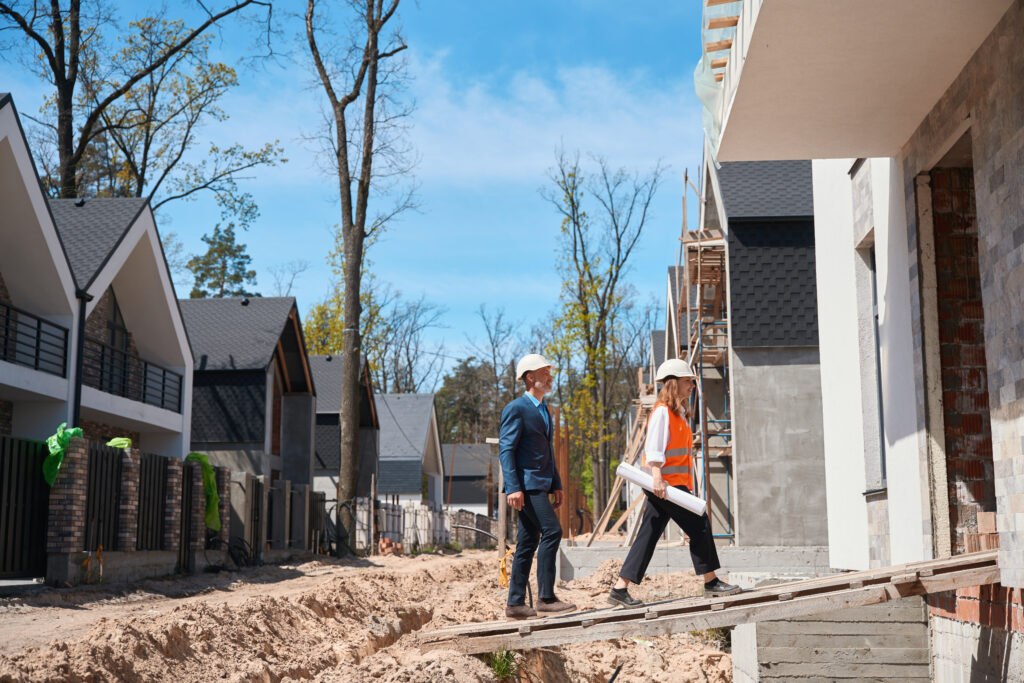The Atlanta real estate market is experiencing dynamic changes as we move through 2024. Understanding these trends is crucial for buyers, sellers, and investors looking to make informed decisions. The city’s robust job market, attractive lifestyle options, and ongoing population growth are all significant factors shaping the real estate landscape. Whether you’re a first-time homebuyer, a seasoned investor, or someone looking to sell, staying updated with the latest market trends can provide a strategic advantage. Here’s a comprehensive look at the current state of the market, supported by recent data and expert insights.

1. Strong Demand and Evolving Buyer Preferences
Atlanta continues to be a seller’s market, but buyers are becoming more selective. The city’s appeal is multifaceted: a strong economy with diverse job opportunities, a vibrant cultural scene, and a high quality of life make Atlanta a magnet for new residents. Consequently, the real estate market remains competitive, with Atlanta ranking fourth for home sales in June.
Changing Buyer Behavior
Though we are still in a seller’s market, buyers are much pickier than they were over the last two years. Homes that don’t check all the boxes for buyers are seeing longer days on market and price reductions. To help improve your chances of selling quickly and for top dollar, make sure that your home is in list-ready condition. Things like interior and exterior painting, replacing flooring, and updating lighting are some relatively inexpensive ways to attract buyers and increase the value of your home. Buyers are also looking for peace of mind when buying; newer HVAC systems, water heaters, and roofs help attract buyers and increase the value of your home.
Market Data:
Recent data from the Atlanta REALTORS® Association shows that the months’ supply of inventory in the Atlanta metro area is around 2.1 months, which is still below the balanced market level of 6 months. However, this limited supply does not guarantee quick sales, as buyer preferences have shifted towards quality and readiness.
Expert Opinion
“The demand for homes in Atlanta remains strong due to the city’s economic resilience and quality of life,” says Ryan Ward, a leading Atlanta real estate expert at Premier Atlanta Real Estate. Ward notes that the influx of new residents, combined with the limited housing supply, creates a favorable market for sellers but poses challenges for buyers.
Buyer’s Strategy
For buyers, having a strategic approach is essential. Getting pre-approved for a mortgage, being prepared to act quickly, and having a clear understanding of your budget and priorities can increase your chances of securing a property in this competitive market.
Seller’s Advantage
Sellers can capitalize on the current market conditions by ensuring their homes are in top condition. Investing in new HVAC systems, water heaters, and roofs can provide peace of mind for buyers, potentially leading to quicker sales and higher offers.

2. Rising Home Prices
Home prices in Atlanta have seen a steady increase. This trend is driven by the low supply and high demand, coupled with rising construction costs. The competitive nature of the market means that buyers are often willing to pay a premium to secure a home, which continues to push prices upward.
Price Data:
The median price of homes sold in Atlanta in June rose 3.7% month over month and 5% year over year to $420,000. This increase highlights the ongoing imbalance between supply and demand, as well as the desirability of the Atlanta area for both residents and investors.
Factors Contributing to Rising Prices:
- Low Inventory: The limited supply of homes available for sale is a significant factor. With fewer homes on the market, buyers are more likely to bid higher to secure a property.
- High Demand: Atlanta’s growing population and strong job market contribute to sustained high demand.
- Rising Construction Costs: The cost of building materials has increased significantly, partly due to supply chain disruptions and increased demand for construction. This has made new homes more expensive to build, contributing to higher overall home prices.
- Inflation: General inflationary pressures in the economy also play a role, as they increase the costs of goods and services, including real estate.
Market Analysis:
“Buyers need to be prepared for competitive bidding situations, as well-priced homes often receive multiple offers,” notes a report from Metro Brokers (BHGRE Metro Brokers). This competitive environment means that buyers must be strategic and ready to act quickly when they find a home they like.
Impact on Different Market Segments:
- First-Time Homebuyers: Rising prices can be particularly challenging for first-time homebuyers who may have limited budgets. It’s essential for them to explore various financing options and consider homes in emerging neighborhoods where prices might be more affordable.
- Move-Up Buyers: For those looking to sell their current home and purchase a larger one, the increased home prices can be advantageous. They can potentially sell their current home at a higher price and use the proceeds for a larger down payment on their next property.
- Investors: The rising prices also present opportunities for investors. Properties in up-and-coming neighborhoods or those that need renovation can be particularly attractive, offering the potential for significant appreciation and rental income.
Advice for Buyers:
- Get Pre-Approved: Secure pre-approval for a mortgage to streamline the buying process and enhance your negotiating power.
- Work with a Real Estate Agent: An experienced local agent can provide valuable insights and help you navigate the competitive market.
- Be Ready to Act Quickly: In a market where homes sell quickly, being prepared to make an offer as soon as you find the right property is crucial.
Advice for Sellers:
- Price Competitively: While the market is in your favor, pricing your home competitively can attract more buyers and potentially lead to multiple offers.
- Prepare Your Home: Ensure your home is in excellent condition to appeal to buyers. Simple improvements and staging can make a significant difference.
- Leverage Professional Marketing: Utilize professional photography and online marketing to showcase your home to the widest possible audience.
By understanding these dynamics and preparing accordingly, both buyers and sellers can make informed decisions in the Atlanta real estate market.

3. Shift Towards Suburban Living
The pandemic has accelerated the trend of moving to the suburbs, where larger homes with more outdoor space are available. Suburban areas like Roswell, Alpharetta, and Sandy Springs are particularly popular among families and professionals working remotely. This shift reflects a desire for more space, both indoors and outdoors, as people continue to adapt to new work and lifestyle patterns.
Suburban Growth:
Suburban markets around Atlanta have seen higher price appreciation and quicker sales compared to urban areas. The appeal of larger homes, quieter neighborhoods, and better access to nature and outdoor activities has drawn many buyers to the suburbs.
Lifestyle Changes:
The shift towards remote work has allowed many professionals to move away from the city center without the concern of a long daily commute. This flexibility has made suburban living more attractive, offering a blend of work-life balance that was harder to achieve before the pandemic.
Popular Suburban Areas:
- Roswell: Known for its historic charm and vibrant environment, Roswell offers excellent schools, parks, and a thriving downtown area with shops and restaurants.
- Alpharetta: This suburb combines modern amenities with a small-town feel. Alpharetta is home to numerous tech companies and offers great shopping, dining, and outdoor activities.
- Sandy Springs: With its proximity to the city and ample green spaces, Sandy Springs attracts those looking for convenience and a suburban lifestyle. The area boasts top-rated schools and a variety of housing options.
Market Impact:
The increased demand in suburban areas has driven up home prices and reduced inventory, much like in the city itself. However, the benefits of suburban living, such as more space and a quieter environment, continue to attract buyers despite the higher prices.
Expert Insights:
“Suburban living offers a unique blend of space, convenience, and community that many buyers are looking for, especially in the current climate,” says a representative from Urban Nest Atlanta. The suburbs provide an appealing alternative to city living without sacrificing access to amenities and employment opportunities.
Buyer’s Considerations:
- Community Amenities: Many suburban areas offer community amenities such as parks, recreational facilities, and various activities that enhance the living experience.
- Commuting Needs: While remote work is more common, buyers should still consider their commuting needs and proximity to major highways or public transportation.
- Future Growth: Suburban areas with plans for future development or infrastructure improvements can offer long-term value appreciation.
Seller’s Advantage:
For homeowners in suburban areas, the current trend provides an excellent opportunity to sell at a premium. Highlighting the benefits of suburban living, such as larger homes and community amenities, can attract buyers who are shifting their focus away from urban centers.
Investment Opportunities:
Investors may find opportunities in suburban areas, particularly in developing communities or those undergoing revitalization. Properties that offer potential for renovation or development can be especially lucrative as demand for suburban living continues to rise.
By understanding the shift towards suburban living and its implications, buyers, sellers, and investors can make strategic decisions that align with their goals in the evolving Atlanta real estate market.

4. Interest Rates and Financing
Mortgage rates, although higher than the historic lows seen in previous years, are currently averaging 6.881% as of today’s date. Understanding the current interest rate environment and financing options is crucial for buyers looking to navigate the competitive Atlanta real estate market effectively.
Current Rates:
As of mid-2024, the average 30-year fixed mortgage rate is around 6.881%. While this is higher than the historic lows experienced during the pandemic, it is still favorable compared to long-term historical averages. This relatively low rate environment helps maintain affordability for many buyers, even as home prices continue to rise.
Future Rate Changes:
The good news is that it looks like rate cuts are on the horizon. Experts predict that rates could decrease in the near future, providing potential relief for buyers concerned about affordability. This possibility could motivate some buyers to move forward with purchasing decisions now, anticipating more favorable financing conditions.
Impact of Rising Rates:
- Monthly Payments: Higher interest rates mean higher monthly mortgage payments, which can affect the overall affordability of homes. Buyers need to consider how changes in interest rates impact their purchasing power.
- Buying Timeline: Some buyers may feel urgency to purchase before rates increase further, leading to quicker decision-making and potentially more competitive offers.
- Refinancing: Homeowners with existing mortgages may look to refinance to lock in lower rates before further increases, which can be a strategic move to reduce long-term interest costs.
Advice for Buyers:
- Shop Around for Rates: Different lenders offer varying rates and terms, so it’s important to compare multiple offers to find the best deal.
- Consider Fixed-Rate vs. Adjustable-Rate Mortgages: Evaluate whether a fixed-rate mortgage, which offers stability, or an adjustable-rate mortgage, which might offer lower initial rates, better suits your financial situation and future plans.
- Budget for Higher Payments: Plan for the possibility of rate increases by ensuring that your budget can accommodate higher monthly payments if needed.
Advice for Sellers:
- Highlight Financing Options: Work with your real estate agent to highlight attractive financing options that may be available for your property. This can make your listing more appealing to buyers.
- Flexible Closing Terms: Offering flexible closing terms can help attract buyers who are eager to secure financing before potential rate hikes.
Financing Trends:
- Increased Use of Technology: The mortgage process has become more streamlined and efficient, with many lenders offering online applications and digital tools to simplify the process.
- Government Programs: First-time homebuyer programs and government-backed loans (such as FHA and VA loans) continue to be important options for many buyers, offering lower down payment requirements and competitive interest rates.
Expert Insights:
“Staying informed about interest rate trends and working closely with a knowledgeable lender can make a significant difference in your home buying journey,” advises a report from Premier Atlanta Real Estate. Being proactive and prepared can enhance your ability to navigate the financing landscape effectively.
Market Impact:
The current interest rate environment supports sustained demand in the Atlanta real estate market. Even with rising rates, the relatively low cost of borrowing compared to historical averages ensures that many buyers remain active in the market, contributing to ongoing competition and robust sales activity.
By understanding the nuances of interest rates and financing options, buyers can better navigate the market, and sellers can position their properties more effectively to attract qualified buyers.

5. New Construction and Development
New construction is on the rise in Atlanta, particularly in suburban areas. However, supply chain issues and labor shortages are causing delays and increasing costs, impacting the pace of new home availability. The demand for new homes remains high as buyers seek modern amenities and larger living spaces that are often found in newly built properties.
Construction Trends:
Builders are focusing on single-family homes in suburban neighborhoods, responding to the demand for more space and modern amenities. These new homes often feature open floor plans, energy-efficient appliances, and smart home technology, making them attractive to today’s buyers.
Impact of Supply Chain Issues:
- Delays: Supply chain disruptions have led to delays in construction timelines. Essential materials like lumber, steel, and concrete have experienced shortages, slowing down the building process.
- Increased Costs: The cost of building materials has risen significantly, contributing to higher overall construction costs. These costs are often passed on to buyers in the form of higher home prices.
- Labor Shortages: The construction industry is also grappling with a shortage of skilled labor. This shortage affects the ability to complete projects on time and can contribute to higher labor costs, further impacting the final price of new homes.
Expert Insights:
“The increase in new construction is helping to slightly alleviate the inventory shortage, but it is not enough to meet the overall demand,” says a representative from Premier Atlanta Real Estate. Builders are working hard to keep up with the demand, but the challenges of supply chain disruptions and labor shortages are significant hurdles.
Types of New Developments:
- Single-Family Homes: These remain the most popular type of new construction, particularly in suburban areas. They offer more space and privacy, appealing to families and those looking for a larger home environment.
- Townhomes and Condominiums: In urban areas and some suburban regions, there is also significant development of townhomes and condominiums. These offer a lower-maintenance lifestyle and are often located in more walkable communities with access to amenities.
- Mixed-Use Developments: These projects combine residential, commercial, and retail spaces, creating vibrant communities where residents can live, work, and play. They are becoming increasingly popular in both urban and suburban areas.
Advice for Buyers:
- Research Builders: It’s important to research builders and their reputations. Look for builders with a track record of quality construction and good customer service.
- Understand the Process: Buying a new construction home can be different from purchasing an existing home. Be prepared for the process, which may include selecting finishes and upgrades, and be aware of potential delays.
- Inspection: Even new homes should undergo a professional inspection to ensure everything is built to code and there are no hidden issues.
Advice for Sellers of Existing Homes:
- Highlight Unique Features: If competing with new construction, emphasize the unique features and charm of your home that new builds may lack, such as established landscaping and character.
- Competitive Pricing: Price your home competitively to attract buyers who might be considering new construction.
Investment Opportunities:
Investors may find opportunities in new developments, particularly in areas with high growth potential. Purchasing pre-construction can sometimes offer price advantages and the opportunity for appreciation as the development completes and the area becomes more established.
Environmental Considerations:
Sustainability is an increasingly important factor in new construction. Many new homes are being built with energy-efficient features and sustainable materials, which can appeal to environmentally conscious buyers and result in long-term cost savings on utilities.
By understanding the dynamics of new construction and the challenges faced by the industry, buyers can make informed decisions and find opportunities that meet their needs in the Atlanta real estate market.

6. Investment Opportunities
Investors are finding attractive opportunities in the Atlanta market, particularly in rental properties and fixer-uppers. The strong rental market, driven by population growth and housing affordability issues, offers good returns for investors. Atlanta’s diverse economy and steady job market make it a stable environment for real estate investment.
Rental Market:
Atlanta’s rental market remains robust, with high occupancy rates and rising rental prices. The influx of new residents contributes to a consistent demand for rental properties.
Key Factors Driving Rental Demand:
- Affordability Challenges: Not everyone can afford to buy a home, particularly first-time buyers facing high home prices. This keeps demand for rental properties high.
- Population Growth: Atlanta’s population continues to grow, fueled by its strong job market and appealing lifestyle. Newcomers often rent before deciding to buy, maintaining a steady demand for rental units.
- Flexibility: Renting offers flexibility that homeownership does not. Many people prefer the ability to move easily, which supports a strong rental market.
Investment Tips:
“Investors should look for properties in up-and-coming neighborhoods where they can add value through renovations and capitalize on price appreciation,” suggests a report from Urban Nest Atlanta. Identifying areas with planned infrastructure improvements or economic development can lead to significant returns.
Types of Investment Properties:
- Single-Family Rentals: These are popular among families and can generate stable rental income. They often appreciate well over time.
- Multi-Family Properties: Duplexes, triplexes, and apartment buildings offer multiple income streams from one property, which can be more efficient and profitable.
- Fixer-Uppers: Properties that need renovation can be purchased at a lower price, renovated, and then rented or sold for a profit. This approach requires more work and investment but can yield high returns.
Neighborhoods to Watch:
- Westside: Areas like West End and Westview are experiencing revitalization, with new businesses and developments attracting residents.
- East Atlanta Village: Known for its vibrant culture and nightlife, East Atlanta Village is popular among creatives.
- Midtown: Midtown remains a hot spot for investment due to its central location and ongoing development projects.
Advice for New Investors:
- Do Your Research: Understand the local market, including rental rates, property values, and neighborhood trends. Working with a knowledgeable real estate agent or investment advisor can provide valuable insights.
- Budget for Repairs: Especially with fixer-uppers, it’s crucial to budget for renovations and unexpected repairs. Having a financial cushion can prevent costly surprises.
- Understand Regulations: Be aware of local rental regulations and landlord-tenant laws. Compliance is key to avoiding legal issues and ensuring a smooth operation.
Expert Insights:
“Atlanta offers a dynamic market with diverse opportunities for investors. Whether you’re looking for rental properties or homes to renovate and flip, the potential for strong returns is there,” says a representative from BHGRE Metro Brokers. The city’s growth and economic stability provide a solid foundation for real estate investment.
Long-Term Outlook:
Investing in real estate is a long-term strategy. While the Atlanta market currently offers favorable conditions, it’s important to consider the long-term potential and risks. Diversifying your investment portfolio and staying informed about market trends can help mitigate risks and maximize returns.
By understanding the investment opportunities in Atlanta, investors can make informed decisions that align with their financial goals and take advantage of the city’s vibrant real estate market.

Conclusion
The Atlanta real estate market in 2024 is characterized by strong demand, rising prices, and a shift towards suburban living. Buyers need to be prepared for competitive conditions, while sellers can take advantage of the favorable market to achieve good returns. For investors, the market offers opportunities, particularly in the rental sector and new developments.
Summary of Key Trends:
- Strong Demand and Evolving Buyer Preferences: High demand and selective buyers make Atlanta a seller’s market. Buyers must be strategic and ready to act quickly, while sellers can benefit from the competitive environment.
- Rising Home Prices: Home prices have increased steadily due to the imbalance between supply and demand, rising construction costs, and overall inflation. Buyers should be prepared for competitive bidding and consider various financing options.
- Shift Towards Suburban Living: The trend towards suburban living, accelerated by the pandemic, highlights the appeal of larger homes and more outdoor space. Suburban areas like Roswell, Alpharetta, and Sandy Springs are particularly popular.
- Interest Rates and Financing: Although mortgage rates have risen from historic lows, they remain relatively low, supporting continued home buying activity. Buyers should get pre-approved for a mortgage and explore different financing options.
- New Construction and Development: New construction is on the rise, especially in suburban areas. However, supply chain issues and labor shortages are causing delays and increasing costs. Buyers should research builders and understand the construction process.
- Investment Opportunities: The strong rental market and the potential for value addition through renovations make Atlanta an attractive market for investors. Identifying up-and-coming neighborhoods and understanding local market trends are key to successful investing.
Personalized Advice and Expert Guidance:
For personalized advice and expert guidance, contact Down Home Properties. Our team of experienced agents is ready to help you navigate the Atlanta real estate market and achieve your goals. Whether you’re buying, selling, or investing, we offer the expertise and resources to make your real estate journey successful.
Contact Us:
- Phone: (770) 209-3919
- Email: [email protected]
- Website: livedownhome.com
Final Thoughts: By staying informed and working with knowledgeable professionals, you can make the most of the current real estate trends in Atlanta. Whether you’re navigating the competitive market as a buyer, maximizing your returns as a seller, or exploring investment opportunities, understanding these trends and preparing accordingly will help you achieve your real estate goals.

